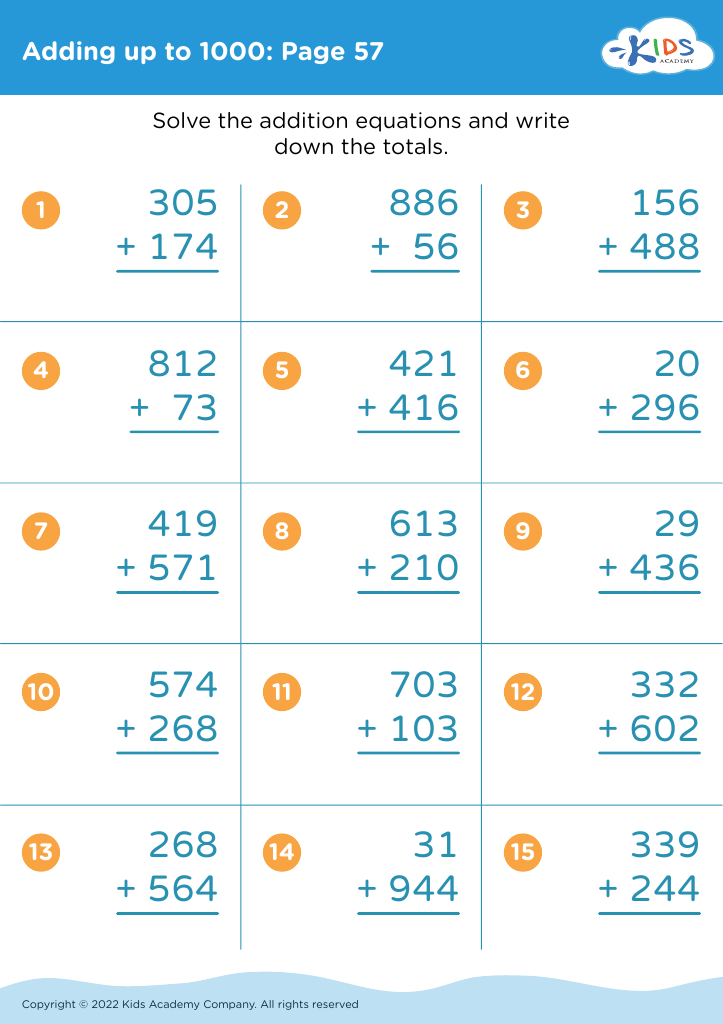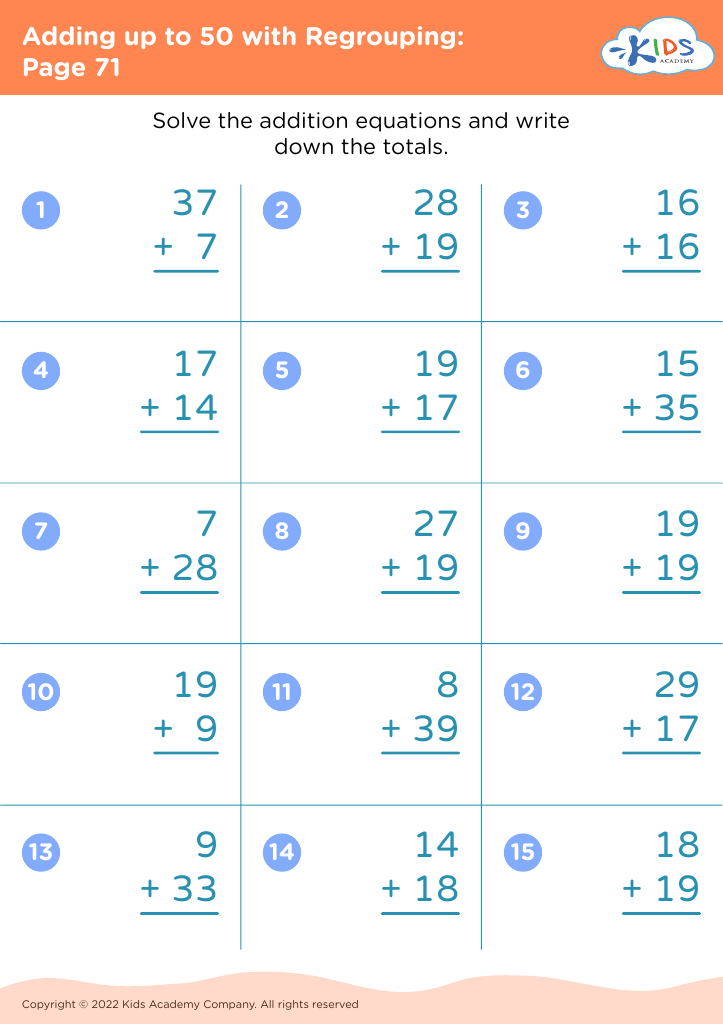Motor skills development Addition & Subtraction Worksheets for Ages 7-8
4 filtered results
-
From - To
Enhance your child's learning journey with our thoughtfully designed motor skills development addition and subtraction worksheets for ages 7-8! These engaging activities promote not only arithmetic proficiency but also fine motor skills crucial for their overall development. Through tracing, cutting, and coloring, children will enjoy practicing addition and subtraction while improving their hand-eye coordination and dexterity. Our worksheets cater to various skill levels, ensuring that each child can build confidence and mastery in math. Perfect for classroom use or at-home learning, these resources will keep your little ones entertained while fostering essential skills that lay the foundation for future success.
Parents and teachers should prioritize the development of motor skills alongside addition and subtraction for children aged 7-8, as these skills are interconnected and vital for overall growth. At this age, children are refining their fine motor skills, which are essential for tasks such as writing, drawing, and using tools. Well-developed fine motor skills enhance a child’s ability to manipulate objects, leading to improved coordination and confidence in their academic work.
Moreover, as children engage in hands-on activities that incorporate addition and subtraction—like counting objects or using manipulatives—they simultaneously practice their motor skills. This multisensory approach not only enhances mathematical understanding but also encourages physical engagement, which promotes neurodevelopment.
Furthermore, strengthening motor skills can improve focus and attention, crucial elements in learning. Activities that blend motor skill development with math practice can make learning more enjoyable, leading to a positive attitude toward education.
Lastly, fostering these skills supports children in their daily lives beyond academics. As they master these fundamental abilities, they build a strong foundation for future learning, ensuring they are well-prepared for greater challenges in school and daily life. Thus, supporting both motor skills and arithmetic is essential for comprehensive development in young learners.



















